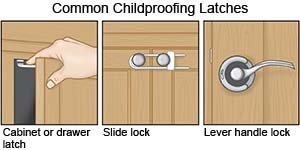Polysubstance Use Disorder
Medically reviewed by Drugs.com. Last updated on Aug 4, 2025.
Polysubstance use disorder (PUD) is a medical condition that develops from long-term use or misuse of 2 or more substances. You are not able to stop even though it causes physical or social problems. PUD includes use of a drug such as cocaine or misuse of alcohol, tobacco, or a prescription medicine such as opioids. This disorder is also called polysubstance abuse.
DISCHARGE INSTRUCTIONS:
Call your local emergency number (911 in the US) or have someone call if:
- You have chest pain and your heart is beating faster than usual.
- You have a seizure.
- You feel you might harm yourself or others.
- You have new shortness of breath.
Seek care immediately if:
- You are dizzy and lightheaded.
Call your doctor or therapist if:
- You know or think you are pregnant.
- You have questions or concerns about your condition or care.
Medicines:
- Withdrawal medicines may be given according to the substances. Withdrawal can cause serious, life-threatening side effects. Certain medicines can help decrease your withdrawal symptoms and your desire for the substance. Ask for more information about the withdrawal medicines you may need.
- Mood stabilizers may be given to help prevent or treat depression or anxiety caused by substance use and withdrawal.
- Take your medicine as directed. Contact your healthcare provider if you think your medicine is not helping or if you have side effects. Tell your provider if you are allergic to any medicine. Keep a list of the medicines, vitamins, and herbs you take. Include the amounts, and when and why you take them. Bring the list or the pill bottles to follow-up visits. Carry your medicine list with you in case of an emergency.
Therapy
may be offered in a hospital, outpatient facility, or drug rehabilitation center. Healthcare providers can help you make decisions about treatment programs. The goal is to help you decrease or stop taking the substances.
- Cognitive behavioral therapy (CBT) can help you manage depression and anxiety caused by PUD. CBT can be done with you and a talk therapist or in a group with others.
- Motivational enhancement therapy can help you set and reach healthy, positive goals.
- Twelve-step facilitation (TSF) is a short, structured approach to reach early recovery. It is done one-to-one with a therapist in 12 to 15 sessions.
Safety guidelines:
- Do not combine medicines, drugs, or alcohol. The combination can cause an overdose, or cause you to stop breathing.
- Learn about the signs of an overdose so you know how to respond. Signs depend on the substances. Your heartbeat or breathing may be faster or slower than usual. You may have heavy sweating, vomiting, trouble sleeping, or sleeping too much. Your skin may be pale or clammy. You may have slurred or slow speech. Tell others about signs of an overdose so they will know what to do if needed. Talk to your healthcare provider about naloxone. You may be able to keep naloxone at home in case of an overdose. Your family and friends can also be trained on how to give it to you if needed. Get immediate help or call your local emergency number (911 in the US) for signs of an overdose.
- Take prescribed medicines exactly as directed. Do not take more than the recommended amount. Do not take it more often than recommended. If you use a pain patch, be sure to remove the old patch before you place a new one. Make sure the patch is not exposed to sunlight. Sunlight speeds up the opioid release from the patch.
- Keep substances out of the reach of children. Store substances in a locked cabinet or in a location that children cannot get to.

Follow up with your doctor or therapist as directed:
Write down your questions so you remember to ask them during your visits.
For support and more information:
- Alcoholics Anonymous
Web Address: http://www.aa.org
- Substance Abuse and Mental Health Services Administration (SAMHSA)
PO Box 2345
Rockville , MD 20847-2345
Web Address: http://www.samhsa.gov or https://dpt2.samhsa.gov/treatment/
© Copyright Merative 2025 Information is for End User's use only and may not be sold, redistributed or otherwise used for commercial purposes.
The above information is an educational aid only. It is not intended as medical advice for individual conditions or treatments. Talk to your doctor, nurse or pharmacist before following any medical regimen to see if it is safe and effective for you.
Learn more about Polysubstance Use Disorder
- Bath Salts Drug
- Can a Drug Test Lead to a False Positive?
- Cannabis: Uses, Effects and Safety
- Cocaine
- Devil's Breath: Urban Legend or the World's Most Scary Drug?
- Drug and Substance Abuse
- Ecstasy
- GHB or Gamma-Hydroxybutyrate
- Hashish
- Heroin
- Ketamine Abuse
Treatment options
Care guides
Further information
Always consult your healthcare provider to ensure the information displayed on this page applies to your personal circumstances.
